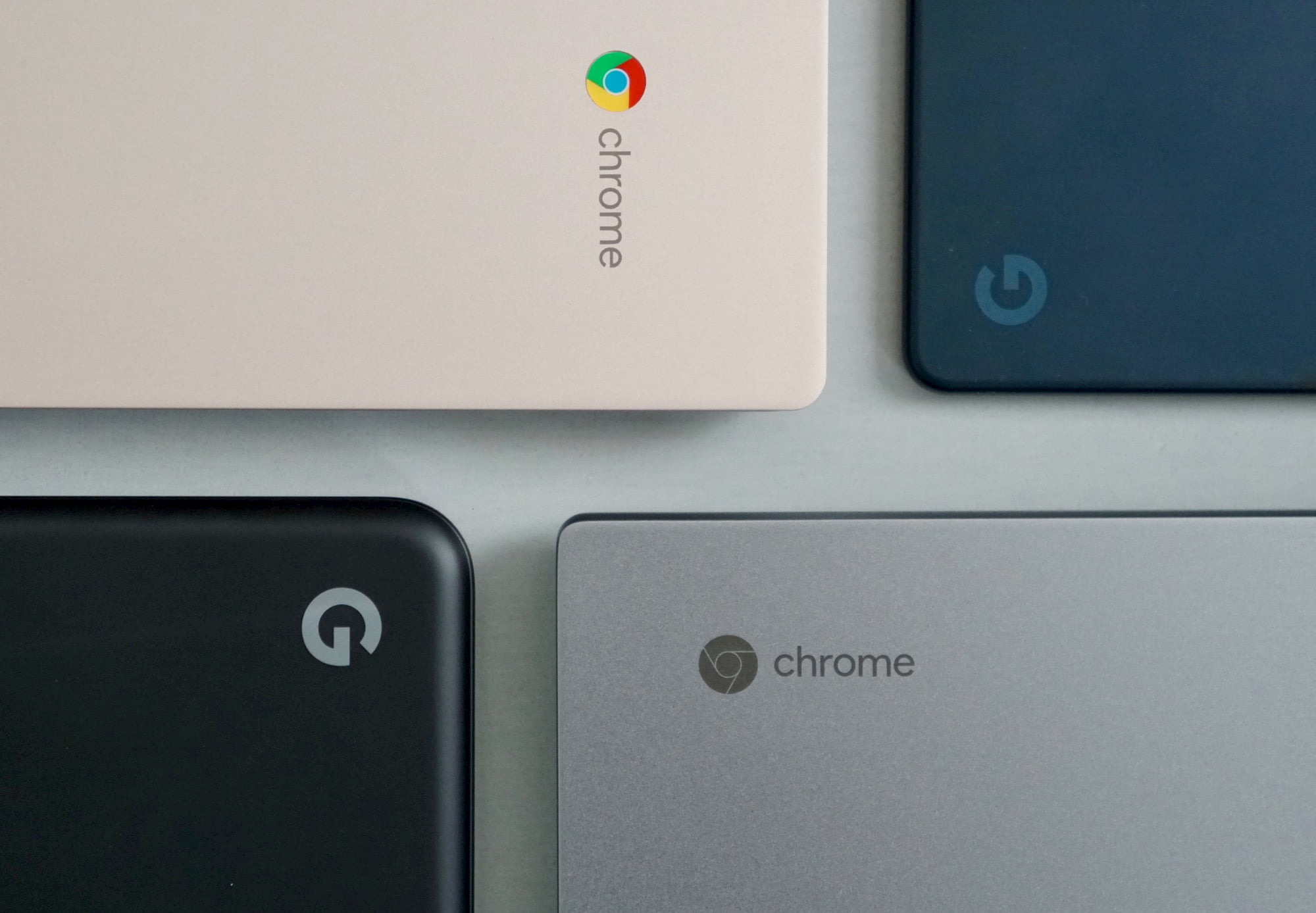
UPDATE – 4/25/2022: With this latest update, we’ve added a few new Alder Lake Chromebooks to the mix. As always, we’ve also added more boards that are now identified and linked to a consumer model and we’ve labeled them as such. Don’t forget to bookmark this page to return here whenever you need to remind yourself where any particular Chromebook board belongs. It’s becoming quite the handy tool!
From time to time, it is useful to get your thoughts in one place. As we continue to track new baseboards and upcoming Chrome OS devices on a daily basis, it can become a bit confusing for us as writers and for you as readers exactly which board is expected to do what. A few years ago, we’d be tracking a handful of devices, see those devices arrive, and move on to looking for more. It was pretty easy to keep all the newness in front of us back then, but it’s a very different story these days.
Looking at my notes and my starred/saved changes from the Chromium Repositories, there are so many new devices in development across multiple different baseboards with a wide assortment of chip sets, configurations, and form factors. As I began looking across all those boards and upcoming devices, it hit me that we’d do well to take some inventory of where we are, where we’re going, and what all these code-names and baseboards have to do with upcoming Chromebooks.
A quick note in the event that all this is new to you: baseboards and overlays are code-named in the open source Chromium Repositories and usually exist these days in a particular structure. There are unibuild boards that spawn multiple different devices with their own code-named overlays. These devices will be similar on the inside, but each one could be a different Chromebook made by a different manufacturer.
There’s a lot of info to take in here, so this is how we’ll proceed: we’ll put each main, unibuild board as a heading, explain what the main features are of that board, and then list the overlays and devices being built off of that board. We’ll link the lists to what we know about these upcoming Chromebooks so you can research further if you’d like. So, with that in mind, let’s dive in and see everything we know about at this point in 2022.
‘Dedede’
We know quite a bit about this board by now, and the main highlight is the Jasper Lake Intel processors that will retain the low price of Intel’s small core, mobile-focused chips while giving users a very nice speed bump over the outgoing Gemini Lake Chromebooks. As we move into 2021/2022, more and more of these boards continue to show up and we’re quite confident there will be many low-priced Chromebooks from these boards to choose from in the coming months.
*UNIDENTIFIED BOARDS
- ‘Beadrix’
- ‘Beetley’
- ‘Blipper’
- ‘Botenflex’
- ‘Bugzzy’
- ‘Cappy’
- ‘Corori’
- ‘Cret360’
- ‘Cret’
- ‘Dedede’
- ‘Driblee’
- ‘Gallop’
- ‘Galnat’
- ‘Galtic’
- ‘Gooey’
- ‘Haboki’
- ‘Keeby’
- ‘Kracko’
- ‘Lalala
- ‘Madoo’
- ‘Magister’
- ‘Maglith’
- ‘Magma’
- ‘Magneto’
- ‘Magpie’
- ‘Metaknight’
- ‘Pirika’
- ‘Pirette’
- ‘Sasukette’
- ‘Wheelie’
- ‘WaddleDoo’
- ‘WaddleDee’
*IDENTIFIED BOARDS
- ‘Boten’ (Lenovo Chromebook 500e 2nd Gen)
- ‘Drawcia’ (HP Chromebook x360 11 G4EE)
- ‘Galith’ (ASUS Chromebook CX1)
- ‘Lantis’ (HP Chromebook 14a)
- ‘Magolor’ (Acer Chromebook 713)
- ‘Sasuke’ (Samsung Galaxy Chromebook Go)
- ‘Storo’ (ASUS Chromebook CR1100)
- ‘Storo360’ (ASUS Chromebook Flip CR1100)
‘Hatch’ (Intel 10th-gen Comet Lake)
The ‘Hatch’ baseboard is based on the 10th-gen Intel Comet Lake chips and these Chromebooks come with an armada of upgrades over their 8th-gen predecessors. ‘Hatch’-based Chromebooks will have faster performance, WiFi 6, Bluetooth 5, optional NVMe storage, fingerprint scanners, pen support, and premium build options. However, ‘Hatch’ boards can also spawn devices like the Lenovo Flex 5 Chromebook that bring much of the goodness of the latest-gen hardware and keep the price in check. An additional feature of these Chromebooks is or will be the inclusion of regular updates until June of 2028.
*UNIDENTIFIED BOARDS
*IDENTIFIED BOARDS
- ‘Akemi’ (Lenovo Flex 5 Chromebook)
- ‘Drallion’ (Dell Latitude 7410 Chromebook Enterprise)
- ‘Dratini’ (HP Pro C640 Chromebook)
- ‘Helios’ (ASUS Chromebook Flip C436)
- ‘Jinlon’ (HP Elite C1030 Chromebook)
- ‘Kindred’ (Acer Chromebook 712)
- ‘Kled’ (Acer Chromebook Spin 713)
- ‘Kohaku’ (Samsung Galaxy Chromebook)
- ‘Nightfury’ (Samsung Galaxy Chromebook 2)
‘Volteer’ (Intel 11th-gen Tiger Lake)
Now that we have most of the 10th-gen Comet Lake devices out of development and into users’ hands, we’re now in the time of Tiger Lake. Things are continuing to move forward on the latest, greatest chips from Intel in the form of the these 11th-gen 10nm processors. These devices started arriving in early 2021 and we expect quite a few before the end of the year and into the early parts of 2022. Fantastic hardware has come from these base boards and we only expect this to continue.
*UNIDENTIFIED BOARDS
*IDENTIFIED BOARDS
- ‘Collis’ (ASUS Chromebook Flip CX3)
- ‘Copano’ (ASUS Chromebook Flip CX5400)
- ‘Delbin’ (ASUS Chromebook Flip CX5500)
- ‘Drobit’ (ASUS Chromebook CX9)
- ‘Elemi’ (HP Chromebook Pro C640 G2)
- ‘Lindar’ (Lenovo Chromebook 5i)
- ‘Volet’ (Acer Chromebook 515)
- ‘Volta’ (Acer Chromebook 514)
- ‘Volteer’ (primary baseboard)
- ‘Voxel’ (Acer Chromebook Spin 713)
‘Brya’ (Intel 12th-gen Alder Lake)
Intel’s next-gen platform – code-named Alder Lake – will continue where Tiger Lake left off and will continue moving Intel into new, more-powerful territories. Alder Lake chips will come bearing Intel’s new hybrid approach to cores, producing a big.LITTLE-type of chip that pairs Intel’s larger, more-powerful cores with their small cores in order to give users a combo of great power and sustainable battery life. We look forward to seeing these devices beginning in the early months of 2022.
- ‘Anahera’
- ‘Banshee’
- ‘Brya’ (primary baseboard)
- ‘Draco’
- ‘Felwinter’
- ‘Gimble’
- ‘Kano’
- ‘Mithrax’
- ‘Nissa’
- ‘Osiris’
- ‘Primus’
- ‘Redrix’
- ‘Shadowkeep’
- ‘Skyrim’
- ‘Taeko’
- ‘Taniks’
- ‘Vell’
- ‘Vyhar’
‘Kukui’ (MediaTek MT8183)
The ‘Kukui’ baseboard is the unibuild that has already spawned the Lenovo 10e and the Chromebook Duet. With ASUS’ new detaching CM3 and CZ1 available and well, it feels like these ARM-based devices have come into their own in 2021. ‘Kukui’ boards all run on the MT8183 (a.k.a.Kompanio 500 series) and, like the Duet, will be decent performers with great battery life and low prices.
*UNIDENTIFIED BOARDS
*IDENTIFIED BOARDS
- ‘Burnet’ (HP Chromebook x360 11 MK G3 EE)
- ‘Damu’ (ASUS Chromebook Flip CM3)
- ‘Esche’ (HP Chromebook 11 MK G9 EE)
- ‘Jacuzzi’ (Acer Chromebook Spin 311, HP Chromebook x360 11 MK)
- ‘Juniper’ (Acer Chromebook Spin 311)
- ‘Kakadu’ (ASUS Detachable Chromebook CM3)
- ‘Katsu’ (ASUS Detachable Chromebook CZ1)
- ‘Kodama’ (Lenovo Chromebook 10e)
- ‘Krane’ (Lenovo Chromebook Duet)
‘Asurada’ (MediaTek MT8192)
This board, for quite some time, stood alone. Think of ‘Asurada’ as a tangent to ‘Kukui’ but also as an upgrade. The chip on board for this one is the MediaTek MT8192 (Kompanio 800 series) and it is a substantial upgrade over the MT8183 mentioned above that is found in ‘Kukui’ devices. With the underlying similarities to ‘Kukui’, we expect development to move fast with ‘Asurada’ and we’d expect it to spawn quite a few boards in the coming months. Right now, there are only two, but that should change in early 2021.
‘Cherry’ (MediaTek MT8195)
The MediaTek MT8195 (Kompanio 1200 series) is the top-end processor from MediaTek built just for Chromebooks. We only have two devices we’re tracking so far, but there will surely be more in the coming weeks. MediaTek says we are slated to have MT8195 devices in the market by the end of 2021. As long as no delays get in the way, we’ll know what this higher end MediaTek chip is capable of soon enough.
‘Zork’ (AMD Ryzen 3700C)
While we’ve become accustomed to seeing the latest Intel chips in new Chromebook boards, it is really awesome to see higher-powered AMD chips being worked on for use in a handful of upcoming Chromebooks. We had a small wave of affordable AMD devices last year, but those were based on the older A4 and A6 chips that offered little in the way of upgrades from the more-affordable mobile Intel processors. With these new Picasso chips from AMD, Intel may finally have a fight on its hands for top-tier Chromebook performance. Additionally, there are a couple boards below that are a sort of tandem to ‘Zork’ in ‘Dalboz’ and ‘Ezkinil’ that are swapping the AMD Picasso chips for the newer, more-mobile focused Dali processors.
*UNIDENTIFIED BOARDS
*IDENTIFIED BOARDS
- ‘Berknip’ (HP Chromebook Pro C645)
- ‘Dalboz’ (internal reference board)
- ‘Dirinboz’ (HP Chromebook 14a)
- ‘Ezkinil’ (Acer Chromebook Spin 514)
- ‘Gumboz’ (HP Chromebook x360 14a)
- ‘Morphius’ (Lenovo ThinkPad C13 Yoga Chromebook)
- Vilboz’ (Lenovo Chromebook 100e Gen 3)
- ‘Vilboz360’ (Lenovo Chromebook 300e Gen 3)
- ‘Woomax’ (ASUS Chromebook Flip CM5)
- ‘Zork’ (primary baseboard)
‘Cezanne’ (AMD Ryzen 5000U)
Representing the most powerful mobile chips AMD makes, the Ryzen 5000U chips were recently spotted in the Chromium Repositories and there are already a few boards being worked on with this next-get chip set. Because they are so new, there’s little we know about them at the moment, but we’re keeping an eye on them for sure. As we expect many of the ‘Zork’ family of Chromebooks to be arriving early in 2021, we’d expect to see these higher-end AMD Chromebooks in the second half of the year.
‘Trogdor’ (Snapdragon 7c)
This chip set is one we’ve been looking at for a very, very long time. ‘Trogdor’ is the torch-bearer for what we hope will become the first Qualcomm Snapdragon Chromebook. In development for years already, we used to keep tabs on ‘Cheza’ as the first possible Snapdragon device, but it looks like ‘Cheza’ may never materialize as it is based on the Snapdragon 845 chip that is rapidly becoming obsolete. Instead, ‘Trogdor’ looks to leverage the newer Snapdragon Compute 7c chip set that makes far more sense in Chromebooks.
*UNIDENTIFIED BOARDS
- ‘Bubs’
‘Cheza‘- ‘Gelarshie’
- ‘Limozeen’
- ‘MrBland’
- ‘Pazquel’
- ‘Pompom’
- ‘Trogdor’ (primary baseboard)
- ‘Wormdingler’
*IDENTIFIED BOARDS
- ‘Coachz’ (HP Chromebook X2 11)
- ‘Homestar’ (Lenovo Chromebook Duet 5)
- ‘Lazor’ (Acer Chromebook Spin 513)
‘Puff’
No generation of Chrome OS boards would be complete without some new boxes on the way. Chromeboxes are simple machines built to perform a simple task: get Chrome OS on simple hardware that users can deploy on existing screens using existing keyboard/mouse hardware. ‘Puff’ is the unibuild baseboard for all the new Chromeboxes we’re tracking with the same 10th-gen Intel Comet Lake processors we currently see in ‘Hatch’ devices and we are expecting everything from entry-level Celeron processors to powerful Core i7 chips, too.
*UNIDENTIFIED BOARDS
*IDENTIFIED BOARDS
As time goes by, we’ll regularly update this post with new boards we find and new news we come across on boards we already have good knowledge about. We’re hopeful this becomes a place you can regularly return to that you may stay up to date on all the Chromebooks on the way. We thought 2020/2021 was crazy, but this is all at a whole new level moving into 2022. Bookmark this post to stay in the know…it’s going to be a fun ride!

Leave a Reply
You must be logged in to post a comment.